- Home
- Salman Rushdie
The Enchantress of Florence Page 21
The Enchantress of Florence Read online
Page 21
“A man in love becomes a fool,” the emperor told Mogor dell’Amore. “To show your beloved’s beauty bare-faced to the world is to take the first step toward losing her.”
“No man ordered Qara Köz to bare her face,” said the traveler. “Neither did she order her slave to do so. She freely made her own decision, and the Mirror made hers.”
The emperor fell silent. Across time and space, he was falling in love.
At the age of forty-four Niccolò “il Machia” was playing cards in the tavern of Percussina in the late afternoon with Frosino Uno the miller, the butcher Gabburra, and Vettori the innkeeper, who were all yelling insults at one another, but, carefully, not at the lord of the hamlet, even if he was sitting down boozily at their raucous table and behaving like their equal, thumping his fist twice when he lost a hand and three times when he won, using bad language the same as the rest of them, drinking as hard as any man there and calling them all his beloved lice, when Gaglioffo the foulmouthed good-for-nothing woodcutter came in at high speed, wild-eyed and pointing and badly out of breath. “One hundred men or more,” he shrieked, pointing through the doorway and gulping down air. “Fuck me twice in the rear if I’m a liar. Heavily armed, with giants on horseback, and heading this way!” Niccolò rose to his feet, still holding his cards. “Then, my friends, I am a dead man,” he said. “The great Duke Giuliano has decided to do away with me after all. I thank you for these evenings of pleasure that have helped me scrape the mold from my brain at the end of a hard day, and must go now and say goodbye to my wife.” Gaglioffo was doubled up, panting and holding his sides to ease the pain of the stitch. “Sir,” he gasped, “perhaps not, sir. They do not wear our livery, sir. Fucking foreigners, sir, from fucking Liguria, maybe, or even further away. And there are women along for the ride, sir. Women with them, foreign women, sir, that when you lay eyes on the pair of witches the desire to fuck them comes upon you like swine fever. Fuck me if I lie. Sir.”
These people were good people, thought il Machia, these few people of his own, but in general the people of Florence were traitors. It was the people who had betrayed the republic and invited the Medici back. The people whom he had served as a true republican, as secretary of the Second Chancery, traveling diplomat, and founder of the Florentine militia, had betrayed him. After the fall of the republic and the dismissal of the gonfaloniere Pier Soderini, the chief of the republic’s governing body, il Machia too had been dismissed. After fourteen years of loyal service the people had shown that they did not care about loyalty. The people were fools for power. They had allowed il Machia to be taken down into the underground bowels of the city where the torturers waited. Such a people did not deserve to be cared for. They did not deserve a republic. Such a people deserved a despot. Perhaps this was what all people were like, everywhere, always excepting these rustics with whom he drank and played cards and triche-tach, and a few old friends, Agostino Vespucci, for instance, thank God they had not tortured Ago, he was not strong, he would have confessed to anything, everything, and then they would have killed him, unless he died during the torture, of course. But they had not wanted Ago, who was il Machia’s junior. It was il Machia they had wanted to kill.
They did not deserve him. These rustics deserved him but in general the people deserved their cruel beloved princes. The pain that had coursed through his body was not pain but knowledge. It was an educative pain that broke the last fragments of his trust in the people. He had served the people and they had paid him in pain, in that lightless subterranean place, that place without a name in which nameless people did nameless things to bodies that were also nameless because names did not matter there, only pain mattered, pain followed by confession followed by death. The people had wanted his death, or at least had not cared if he lived or died. In the city that gave the world the idea of the value and freedom of the individual human soul they had not valued him and cared not a fig for his soul’s freedom, nor his body’s integrity neither. He had given them fourteen years of honest and honorable service and they had not cared for his sovereign individual life, for his human right to remain alive. Such a people were to be set aside. They were incapable of love or justice and therefore did not signify. Such a people no longer mattered. They were not primary but secondary. Only despots mattered. The love of the people was fickle and inconstant and to pursue such a love was folly. There was no love. There was only power.
By slow degrees they had taken his dignity from him. He had been forbidden to leave the territories of Florence, and he was a man who loved to travel. He had been forbidden to enter the Palazzo Vecchio, where he had worked for so many years, where he belonged. He had been interrogated by his successor, a certain Michelozzi, a Medici lickspittle, a toady of toadies, regarding possible embezzlement. But he had been an honest servant of the republic and no trace of wrongdoing could be detected. Then they found his name on a piece of paper in the pocket of a man he did not know and locked him up in the nameless place. The man’s name was Boscoli, a fool, one of four fools whose plot against the Medici had been so foolish that it was crushed almost before it had begun. In Boscoli’s pocket was a list of two dozen names: enemies of the Medici in the opinion of a fool. One of the names was Machiavelli.
Once a man has been in a torture chamber his senses never forget certain things, the wet darkness, the cold stink of human ordure, the rats, the screams. Once a man has been tortured there is a part of him that never stops feeling the pain. The punishment known as the strappado was among the most agonizing torments that could be inflicted on a human person without killing him outright. His wrists were fastened behind his back, and the rope that bound them passed over a pulley hanging from the ceiling. When he was lifted off his feet by that rope the pain in his shoulders became the whole world. Not just the city of Florence and its river, not only Italy, but all God’s bounty was erased by this pain. Pain was the new world. Just before he stopped thinking about anything, and in order not to think about what was about to happen, il Machia thought about the other New World, and about Ago’s cousin Amerigo, Gonfaloniere Soderini’s friend, Amerigo the wild man, the wanderer who had proved, with Columbus, that the Ocean Sea didn’t contain monsters that could bite a boat in half, and didn’t turn to fire when it reached the Equator, and didn’t become a sea of mud if you sailed too far west, and who, even more importantly than all of that, had had the wit to realize what that dolt Columbus never grasped, namely that the lands on the far side of the Ocean Sea were not Indies; they had nothing to do with India, and were, in fact, an entirely new world. Would that New World now be denied by order of the Medici, would it be canceled by decree and become just another ill-fated idea—like love or probity or freedom—to fall along with the fallen republic, dragged down by Soderini and the rest of the losers, including himself? Lucky sea-dog, il Machia thought, to be safely in Seville, where even the Medici’s arms could not reach him. Amerigo might be old and sick but he was safe from harm and at least he could die in peace after all his wanderings, il Machia thought; and then the rope hoisted him up for the first time and Amerigo and the New World disappeared, and the old world too.
They did it six times and I confessed to nothing because I had nothing to confess. After they stopped torturing him they locked him in the jail cell again and pretended they would forget him and let him die there slowly in the rodent dark. Then, eventually, and unexpectedly, release. Into ignominy, oblivion, married life. Release into Percussina. He walked in the woods with Ago Vespucci and looked for mandrake roots but they were not children now. Their hopes lay behind them in ruins instead of luminously up ahead. The time for mandrakes was past. Once Ago had tried to get La Fiorentina to fall in love with him by dropping mandrake powder into her drink but smart Alessandra was not going to be caught that way, she was impervious to mandrake magic, and devised for Ago a dreadful punishment of her own. On that night after drinking the mandrake potion she broke the fastidious habits of a lifetime and let Ago the lowly wretch into her haught
y bed, but after he experienced forty-five minutes of the undiluted bliss of Paradise she had him thrown out unceremoniously, reminding him before he left of the secret curse of the mandrake, which was that any man who made love to a woman under the power of the root would die within eight days, unless she saved his life by allowing him to stay with her for a whole night, “of which,” she told him, “there is simply no possibility, my dear.” Ago, the superstitious scaredy-cat, as obsessed by magic as everyone else in the world, spent eight days convinced that the end was imminent, began to feel death creeping through his limbs, caressing him with cold fingers, squeezing slowly, slowly around his testicles and heart. When he woke up alive on the ninth morning he was not relieved. “A living death,” he told il Machia, “is worse than the death of the dead, because the living dead can still feel the pain of a broken heart.”
Niccolò knew something now about living death, because although he had narrowly avoided the death of the dead he was a dead dog now, as dead a dog as poor Ago, for they had both been dismissed from life, from their jobs, from grand salons like Alessandra Fiorentina’s, from what they had had every reason to think of as their real existence. Yes, they were broken-hearted dogs, they were less than dogs, they were married dogs. He stared at his wife over the dinner table every night and found nothing to say to her. Marietta, that was her name, and here were his children, their children, their many, many children, so, yes, he had certainly married and had children like a proper person, but that was in another age, the age of his neglectful grandeur, when he was fucking a different girl every day to stay vigorous and alive, and fucking his wife too, of course, six times, at least. Marietta Corsini, his wife, who sewed his undershirts and towels, and knew nothing about anything, who didn’t understand his philosophy or laugh at his jokes. Everyone else in the world thought he was funny, but she was a literalist, she thought a man meant whatever he said, and allusions and metaphors were just the tools men used to deceive women, to make women think they didn’t know what was going on. He loved her, that was true. He loved her like a member of his family. Like a sibling. When he fucked her he felt faintly wrong. He felt incestuous, as if he were fucking his sister. As a matter of fact that notion was the only thing that could arouse him when he lay with her. I am fucking my sister, he told himself, and came.
She knew his thoughts, as any wife knows her husband’s mind, and they made her unhappy. He was courteous to her and cared for her deeply in his way. Madonna Marietta and her six children, his mouths to feed. Absurdly fertile Marietta: touch her and she ballooned with child, and popped out a Bernardo, a Guido, a Bartolomea, a Totto, a Primavera, and the other boy, what was his name, Lodovico, it seemed there was no end to fatherhood, and these days the money was so tight. Signora Machiavelli. Here she was coming into the tavern in a hurry, looking as if her house was burning down. She wore a frilled mob-cap and her hair hung down in uncontrolled ringlets around that egg-shaped face with its small, full mouth and her hands flapped like the wings of a duck; indeed, on the subject of ducks, it had to be admitted that she waddled. His wife waddled. He was married to a waddling wife. He could not imagine touching her private places ever again. There was really no reason to touch her anymore.
“Niccolò mio,” she cried in that voice that, yes, did sound just a little too much like a quack, “have you seen what’s coming down the road?”
“What is it, my dear spouse,” he replied, solicitously.
“Something bad for the neighborhood,” she said. “Like Death himself on horseback and his ogres too, and his queen demonesses by his side.”
The arrival in Sant’Andrea in Percussina of the woman who would become famous, or perhaps notorious, as l’ammaliatrice Angelica, the so-called enchantress of Florence, brought men running from the fields, and women from their kitchens, wiping doughy fingers on aprons as they came. Woodcutters came from the forests and the butcher Gabburra’s son ran out from the slaughterhouse with bloody hands and potters left their kilns. Frosino Uno the miller’s twin brother Frosino Due emerged floury from the mill. The Janissaries of Stamboul were a sight to behold, battle-scarred and leathery, and a quartet of Swiss albino giants on white horses was not a thing seen every day in that neck of the woods, while the imposing figure at the head of the cavalcade, with his white, white skin and his black, black hair, the pale captain whom Signora Machiavelli had identified as the Reaper himself, was undoubtedly alarming, and children shrank from him as he passed, because whether he was the exterminating angel or not he had plainly seen too much of dying for his own good or anyone else’s. But even if he was the Angel of Death he also seemed strangely familiar and spoke perfectly the dialect of the region, and that made people wonder if Death always came in a local manifestation, so to speak, using your slang and knowing your secrets and sharing your private jokes even as he carted you away to the shadow world.
But it was the two women, Marietta Corsini Machiavelli’s “devil-queens,” who quickly captured everyone’s attention. They were riding as men rode, straddling their mounts in a manner that made their female audience gasp for one reason while the watching men’s gasps were of another kind, and their faces shone with the light of revelation, as though in those early days of their unveiling they were capable of sucking light in from the eyes of all who looked upon them and then flinging it out again as their own personal brilliance, with mesmeric, fantasy-inducing effects. The Frosino brothers, twins themselves, acquired faraway expressions as they imagined a double wedding sometime in the near future. In spite of their delusions, however, they were keen-eyed enough to see that the astonishing ladies were not quite identical, and probably not even related. “The first lady is the mistress and the other the servant,” said flour-dusted Frosino Due, adding, because he was the more poetic of the two brothers, “They are as the sun and the moon, the sound and the echo, the sky and its reflection in a lake.” His sibling was the direct type. “So I’ll take the first lady, and you’ll have number two,” said Frosino Uno. “Because the second, she is beautiful, sure, you won’t be getting a bad deal, but next to the first one she becomes invisible. You have to shut one eye, to blind yourself to my girl, in order to notice that yours is pretty too.” As the older twin by eleven minutes he assigned to himself the prerogative of having first pick. Frosino Due was about to protest, but just then the first lady, the mistress, turned to look directly at the brothers and murmured to her companion in perfect Italian.
“What do you think, my Angelica?”
“My Angelica, they are not without their certain simple charms.”
“It’s forbidden, of course, my Angelica.”
“My Angelica, of course. But maybe we will visit them in their dreams.”
“Both of us, visiting both of them, my Angelica?”
“My Angelica, the dreams will be better that way.”
They were angels, then. Not devils but mind-reading angels. No doubt their wings were folded away neatly beneath their clothes. The Frosino brothers reddened and cringed and stared wildly around them, but it seemed that only they had heard what the angels on horseback had said. That was impossible of course and so it was further proof that something of a divine nature had occurred. A divine or an occult nature. But these were angels, angels. “Angelica,” the name they apparently shared, was no handle for a demon. They were dream angels who had promised the millers joys of which men like them could truly only dream. The joys of Paradise. Their mouths suddenly full of giggles, the brothers turned away and ran toward the flour mill as fast as their legs would take them. “Where are you going?” Gabburra the butcher called after them, but how could they tell him that they needed, with great urgency, to lie down and close their eyes? How to explain exactly why it was so important, why it had never been more important, to sleep?
The procession came to a halt outside Vettori’s tavern. A silence fell, broken only by the neighing of tired horses. Il Machia was staring at the women like everyone else so when he heard Argalia’s voice coming out
of the mouth of the pale warrior he felt as if he had been dragged from a place of beauty into a stinking cesspit. “What’s the matter, Niccolò,” the voice was saying, “don’t you know that when you forget your friends it means you have also forgotten yourself?” Marietta clutched at her husband in fright. “If Death has become your friend today,” she hissed in his ear, “then your children will be orphans before night falls.” Il Machia shook himself as if shrugging off the effects of an intoxicating draft. He looked the rider in the eye, steadily and without warmth. “In the beginning there were three friends,” he said softly. “Niccolò ‘il Machia,’ Agostino Vespucci, and Antonino Argalia. Their boyhood world was a magic wood. Then Nino’s parents were taken by the plague. He left to seek his fortune and they never saw him again.” Marietta looked back and forth from her husband to the stranger and a slow comprehension spread across her face.
“Then,” Niccolò concluded, “after long years of treasonous deeds against his country and his God, which damned his soul to Hell and rendered his body deserving of the rack, Argalia the Pasha—Arcalia, Arqalia, Al-Ghaliya, even his name became a lie—came back to what was no longer his home.”
He was not a deeply religious man, il Machia, but he was a Christian. He avoided mass, but he believed all other religions to be false. He held popes responsible for most of the wars of the period, and thought of many bishops and cardinals as criminals, but cardinals and popes liked what he had to say about the nature of the world better than princes. He would rant to his tavern companions about how the corruption of the Curia had driven Italians away from faith, but he was not a heretic, certainly not, and though there were aspects of the rule of the Mussulman Sultan that he was prepared to learn from and even to praise, the idea of entering such a potentate’s service was a nauseating one.

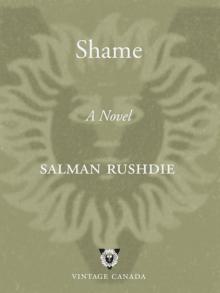 Shame
Shame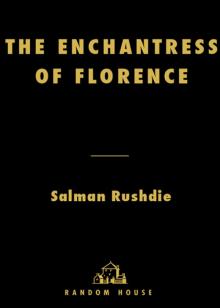 The Enchantress of Florence
The Enchantress of Florence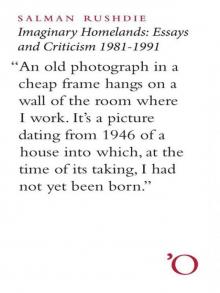 Imaginary Homelands: Essays and Criticism 1981-1991
Imaginary Homelands: Essays and Criticism 1981-1991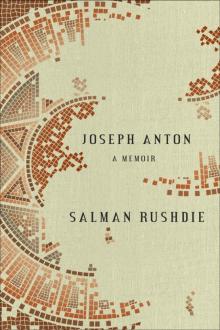 Joseph Anton: A Memoir
Joseph Anton: A Memoir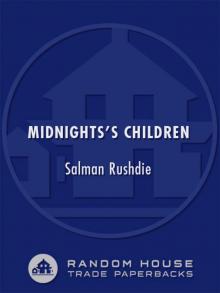 Midnight's Children
Midnight's Children East, West: Stories
East, West: Stories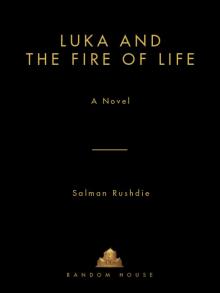 Luka and the Fire of Life
Luka and the Fire of Life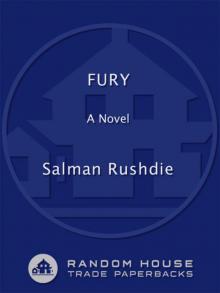 Fury Fury Fury
Fury Fury Fury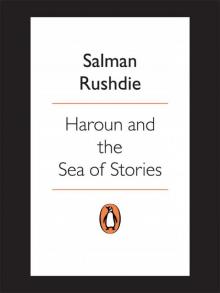 Haroun and the Sea of Stories
Haroun and the Sea of Stories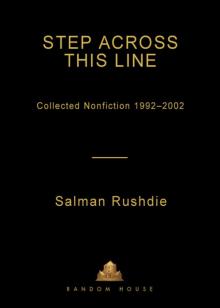 Step Across This Line: Collected Nonfiction 1992-2002
Step Across This Line: Collected Nonfiction 1992-2002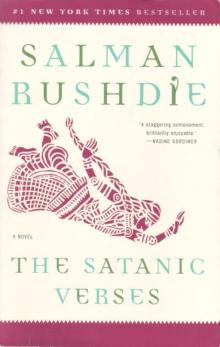 The Satanic Verses
The Satanic Verses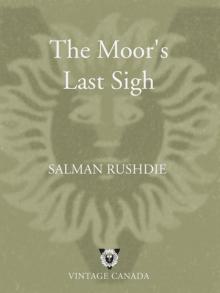 The Moor's Last Sigh
The Moor's Last Sigh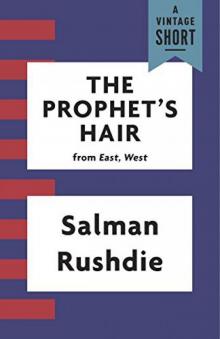 The Prophet's Hair
The Prophet's Hair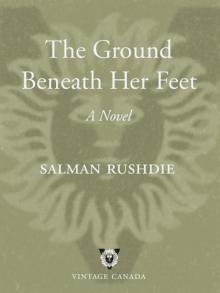 The Ground Beneath Her Feet
The Ground Beneath Her Feet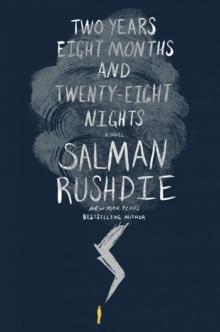 Two Years Eight Months and Twenty-Eight Nights
Two Years Eight Months and Twenty-Eight Nights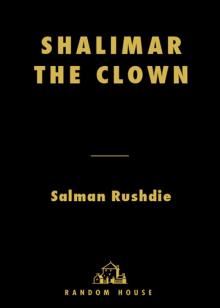 Shalimar the Clown
Shalimar the Clown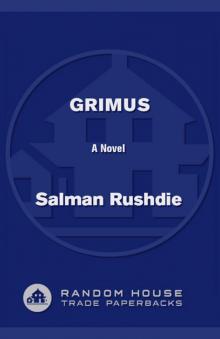 Grimus
Grimus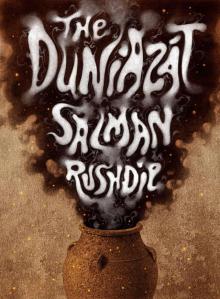 The Duniazát
The Duniazát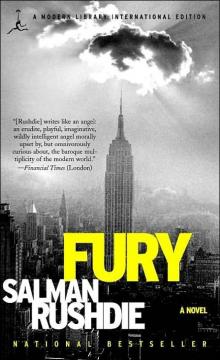 Fury
Fury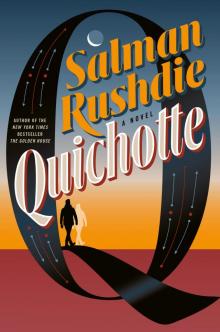 Quichotte
Quichotte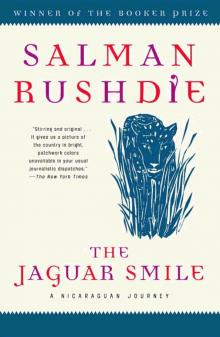 The Jaguar Smile
The Jaguar Smile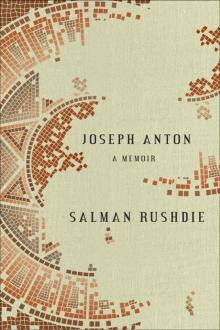 Joseph Anton
Joseph Anton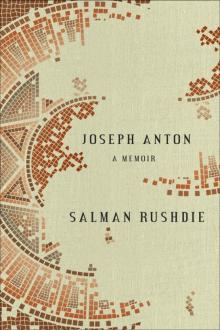 Joseph Anton: A Memoir: A Memoir
Joseph Anton: A Memoir: A Memoir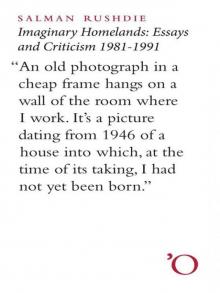 Imaginary Homelands
Imaginary Homelands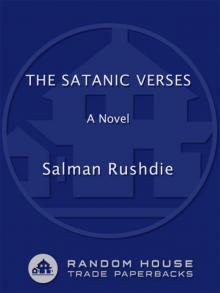 The Satanic Verses: A Novel
The Satanic Verses: A Novel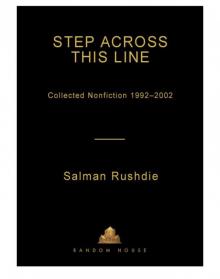 Step Across This Line
Step Across This Line East, West
East, West